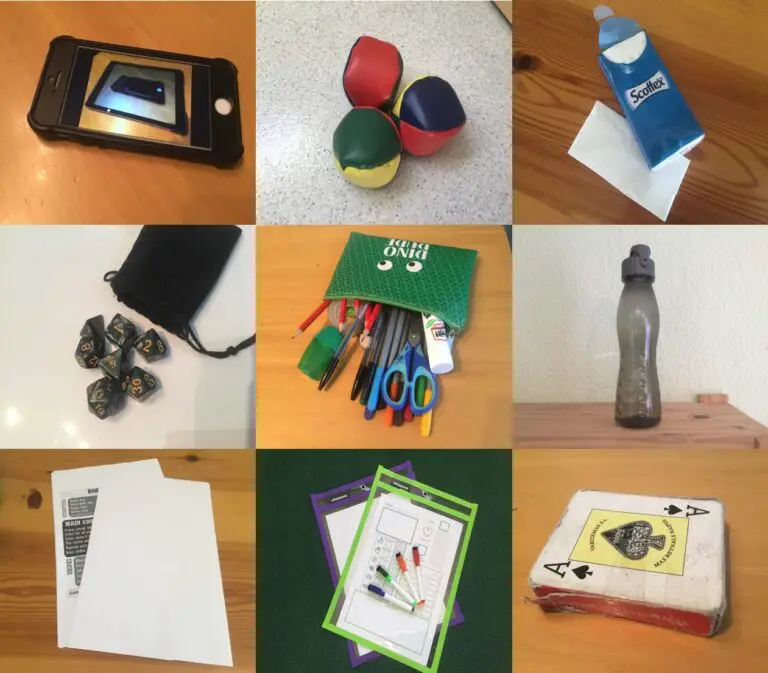Some EFL/ESL teachers love teaching adults. Others would much rather avoid older students entirely and stick to teaching kids. A lot of that is down to personal preference. However, in some cases, teachers may be uncomfortable teaching adults because they’re not used to it. It’s a totally different experience.
Adults have different demands to children. Most of the time, kids are in class because it’s legally required to go to school, or their parents want them to get extra support in private lessons or at a language academy. Adults, in general, have chosen to take classes themselves and have high expectations.

But lots of teachers think classes with adults have to be dry and academic. Far from it. Just because they don’t always want to run about and play silly games, that doesn’t mean you have to sit and do grammar exercises all the time.
I’ve taught adults of all ages in my experience as an EFL teacher. I’ve learned what works and what doesn’t, and in this article I’m going to share my top nine tips for success.
- Create a supportive atmosphere
- Set rules and expectations
- Be realistic about homework
- Give students agency
- Get them set up with Anki
- Provide quality activities
- Engage with their reality
- Consider projects
- Remember to have fun
1. Create a supportive atmosphere
Teaching is about relationships. Teacher-student and student-student interactions set the emotional state for learning. This is even more true in English, which relies on confidence and performance.
Adults of all ages and backgrounds feel shame. They get embarrassed when they make mistakes, and the prospect of looking incompetent in front of classmates is enough for most of them to close up and shy away.
When I start with an adult class, they often tell me their level is extremely low. It doesn’t take long to realise this is not the case, it’s just they have little confidence in themselves. It’s also a protective mechanism. By saying you’re bad at something, you don’t look so foolish when you mess up.
This has to change.

The number one thing you must get right from the start is the atmosphere in the class. Early on, you need to show them this is a place without judgement or mockery, a place where failure is accepted and embraced, and everyone is working together to improve.
Until you know your class very well, you want to avoid competition and favour collaboration. Crack down on anyone laughing at others for getting something wrong, and give plenty of praise for those who try hard.
The first lesson with a new student, or group of students, has a big impact on the tone going forward. For more on getting this crucial first class right, read my article Acing Your First Private EFL/ESL Class and check out my Lesson Plans for First Private EFL/ESL Lesson.
2. Set rules and expectations
It’s tempting to think that you don’t need to set rules and expectations with adults. They’re mature enough to know all that already, right?
Wrong. While you shouldn’t necessarily demand adult students behave like kids do at school, you still need to set boundaries.
I’ve found some adults (not all – many are very well-behaved) think that because they’re no longer schoolchildren, they can get away with things like using their phone during class, or talking over the teacher. And if you don’t stop it early, it’s hard to reassert control.

The issue with behaviour management in adult classes is the teacher doesn’t have the same power as with kids. Punishment and reward systems are patronising. You can’t send them to the head teacher if they’re being naughty.
So you have to rely on trust and mutual understanding. The best way to do this is by setting expectations early on, so students know what is acceptable and what isn’t. Make this a dialogue, too, so they feel like their opinions and suggestions are valued.
To learn more details about setting expectations in your EFL/ESL classes, read my guide: How to Set Rules & Expectations in Private EFL/ESL Classes. While the article is focused on private classes, the principles apply to lessons in business, language academies and vocational schools.
3. Be realistic about homework
Homework typically fails in adult classes. Unless you have extremely motivated students, most people don’t have the time, energy or inclination to do a bunch of grammar exercises or writing tasks at home.
And unlike with children, there’s not much you can do if they don’t hand it in.
So what do you do? Abandon homework completely, or set it and hope for the best? It’s not an easy question to answer, but here are two things that work for me.
First of all, talk with your students. Ask them if they want you to set homework, and if so, how much and what kind of activity. There are some adults who will do everything you set without fail every week, and you want to take advantage of that. Others might be upfront and tell you they simply don’t have the time.
This way, you’re all on the same page. Even in a large group, you can ask individuals if they honestly intend to do homework, and set it to those who say yes.
Secondly, make homework interesting. If the tasks you set are tedious and students rush through them just to have something to hand in, you’re wasting your time.
Instead, give them fun things to do. How about listening to some music and sharing what they thought about it (written review, or oral presentation in the next class)? Get them to write to a pen pal. Or try the Narrative Telephone game where a story gets passed from person to person, changing every time.
For a list of fun activities you can set for homework (including Narrative Telephone) and associated tips, head to my article 9 Engaging Homework Ideas for EFL/ESL: No worksheets!
4. Give students agency
I touched on this in tips 2 and 3. Let your students have a say about what happens in class.
This tip isn’t exclusive to adult lessons, but it’s even more salient since adults generally have a better idea of what will help their learning compared to children who, with too much agency, just mess around.
While some adults may also take advantage of too much power, most of the time you can trust them to stay within reasonable limits. Adults know their strengths and weaknesses. If they want to learn in a more dynamic, expressive way, give them that option. If they prefer book work, focus on that.
Communication is vital here. Give your students time and space to let you know how they feel about the classes and what they’d like to change. Don’t take it as an insult to your teaching. In fact, by modifying your approach to suit their needs, you’re doing what the best educators do. Adapt.
There is one caveat with this tip. Make sure your students aren’t trying to change lessons so they can cover up their weaknesses.
As I said in tip 1, adults don’t like to fail. A student who isn’t confident at speaking may use the agency you give them to ask for quiet book work, so they never have to face their fears.
Ultimately, control of the class has to be yours. By getting to know your students and creating a supportive atmosphere, you can give them control over their learning while guiding them in the right direction.
5. Get students set up with Anki
Anki is a free spaced-repetition flashcard app. If you don’t know what that is, it’s essentially a powerful way of learning vocabulary with an automated algorithm that predicts when you’ll forget something and has you practice it at that moment.
You can use images, audio, spelling, and definitions. I use it for my personal language learning, and I’ve seen great success in classes with children and adults.
For a detailed explanation and guide to setting up the app, check out my article Supercharge EFL/ESL Vocab With Spaced Repetition (Anki)
It works best with a little practice (around 5 minutes) every day. It takes discipline and commitment to build it into your routine. That’s why I try to get my adults using it early on, so they see the benefits.

You can’t expect it to work with everyone. Sometimes it takes a few attempts to get it into your daily life, but the results I’ve seen make it totally worthwhile.
Using Anki is just one part of my system for learning new words in English. To read the whole guide, click the link to my Best Method to Improve EFL/ESL Students’ Vocabulary: 9 Steps.
6. Provide quality activities
Teachers can fall into the trap of thinking adults are more mature than children, so you can give them less exciting activities. True, they’re generally more mature, but it doesn’t mean you should give them boring things to do.
Adults may show a preference for book work and worksheets due to the previously mentioned reluctance to look silly in front of their classmates. But they’re missing out on deeper learning. Don’t settle for second best.
Now, I’m not saying you should force your students to start running around the classroom or doing crazy mimes. Instead, give them engaging games and activities that provoke conversation, collaboration and creativity.
If you’re wondering what kind of activities to use, look no further than my list of 9 Classy EFL/ESL Games & Activities for Adults.
Take, for example, the third entry on the list, Call My Bluff. It’s a game that requires clever thinking, a good grasp of English, and a brief speaking performance. No running, no shouting, no clowning around. Everyone can play it and keep their dignity intact.
Of course, if your adults enjoy getting up and expressing themselves, let them! If you’ve created a supportive atmosphere, as explained in tip 1, your students will be more willing to engage with those powerful activities that really take their English to the next level.
Role plays are a great example of this. At first, adults are often wary of role playing a different character, but when they’ve had a few positive experiences, it doesn’t take long before they’re really enjoying themselves. All while improvising wonderful English dialogue on the spot.
For my advice on how to run role plays with older students, read Teaching EFL/ESL to Teenagers & Adults With Role Play, and for some great scenario ideas, follow this link: 5 Engaging EFL/ESL Role Play Activities for Adults (+ tips).
7. Engage with their reality
Building on the idea of having engaging activities in your adult classes, take things to the next level by making your classes relevant and unique to them.
This is where the time taken to know your students bears fruit. If you know the interests of your students, let’s say they love murder mystery TV shows, you can design classes around those things.
Instead of doing a standard cookie-cutter reading exercise you pulled off the internet that’s about “modern technology” or any other generic topic, you could find an extract from a Sherlock Holmes story, or a script from Broadchurch. Set homework to watch episodes and discuss them in the next class.

Spend some time learning vocab related to the topic. Design a few activities where students have to use their English skills and deduction to solve a crime. Go one step further, and get a print-and-play escape room (Mystery Locks is a great place to start) and let them role play as their favourite sleuth.
Of course, you can’t do this for every aspect of all your classes. Forcing Poirot into an explanation of adverbs won’t always work, but you can definitely spice up example sentences and practice questions with characters they love.
Take these two fill-the-gap sentences for adverb practice. I know which I think is better!
John ____________ walked to the park. (slow)
Columbo ____________ lifted the victim’s arm to inspect the fatal wound (slow).
8. Consider projects
If you aren’t tied to a narrow curriculum and enjoy a little freedom in your class planning, I highly recommend you try doing some projects with your adult students.
They’re a powerful way of engaging with a lot of valuable language you rarely find in textbooks. There’s also plenty of communication and teamwork. Many adults learn English to develop their professional skills at work, so the language they develop through projects has a profound impact.

Before you get stuck in, though, remember tip 4 – agency. Check your students are happy with project-based learning, and let them come up with ideas of what kind of project they’d like to do.
When adults are motivated, they can achieve some pretty awesome things. You could start up a small business, have a cultural festival, or even get stuck into a table-top role-playing game.
For more project ideas, as well as tips from my personal experience with them, read 9 Fantastic Project Ideas for EFL/ESL.
9. Remember to have fun
The concept that kids can have fun in EFL/ESL classes but adults can’t is surprisingly widespread among both teachers and students. It’s utter nonsense.
Those who think adults are so mature and sophisticated that they’re above enjoying themselves fail to understand the core reason why adult lessons tend to be calm and boring. It’s not because adults don’t like having fun. It’s that they don’t feel it’s proper.
They’re missing out. Learning English (or any subject, to be fair) should be an exciting and memorable activity, not a bland, lifeless process.

You have the power to change this and make learning awesome. But with power comes responsibility. You’re the one who has to initiate the fun. You’re the one who has to bring the energy and get past the fears of looking like a fool. Show your students the way, and they’ll follow.
I’m not saying you have to be a clown, or a stage entertainer. And at first, it might be too much for your new adult students if you’re overly excited about everything. Just be positive and willing to let loose a little.
And now we come full circle, back to tip number 1. When you build that supportive atmosphere, you give students permission to enjoy themselves and take risks.
That’s when you really see how wonderful teaching can be.
For quick access to all my other guides linked throughout this article, check out the list below:
Acing Your First Private EFL/ESL Class: 9 Steps to Success
Lesson Plans for First Private EFL/ESL Lesson (+ tips)
How to Set Rules & Expectations in Private EFL/ESL Classes
9 Engaging Homework Ideas for EFL/ESL: No worksheets!
Supercharge EFL/ESL Vocab With Spaced Repetition (Anki)
Best Method to Improve EFL/ESL Students’ Vocabulary: 9 Steps
9 Classy EFL/ESL Games & Activities for Adults (+ tips)
Teaching EFL/ESL to Teenagers & Adults With Role Play
5 Engaging EFL/ESL Role Play Activities for Adults (+ tips)
9 Fantastic Project Ideas for EFL/ESL: Tips for success








